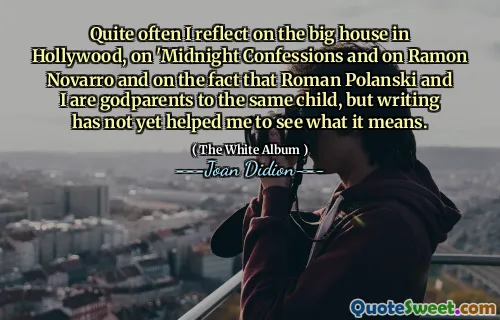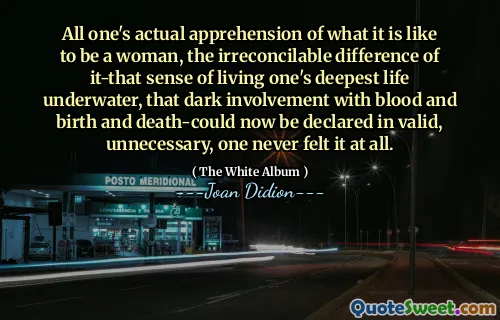"The White Album" is a collection of essays by Joan Didion that captures the cultural landscape of the late 1960s and early 1970s in America. Through a series of vivid and personal narratives, Didion reflects on the chaotic events and the disintegration of social norms during this era. She intertwines her experiences in California, including her encounters with Hollywood, the counterculture movement, and her observations of significant cultural moments, painting a portrait of a society in turmoil.
One of the essay's central themes is the fragmented nature of reality, which Didion illustrates through her own emotional and psychological struggles. As she recounts her experiences, she also conveys a sense of disorientation and confusion about identity and meaning in a world rapidly changing. This introspection provides readers with an intimate look into Didion's psyche and the broader societal challenges of the time.
Overall, "The White Album" is not just a reflection of a specific period but also an exploration of the American identity and its complexities. Didion's incisive observations and lyrical prose invite readers to contemplate the intricacies of life, culture, and memory, making it a powerful and enduring work in American literature.
More »
Today Birthdays
1896 -
John Dos Passos
1960 -
Edward St Aubyn
1925 -
Yukio Mishima
1875 -
Albert Schweitzer
1919 -
Andy Rooney
1952 -
Maureen Dowd
1957 -
Anchee Min
1969 -
Dave Grohl
1988 -
Tom Rosenthal
1913 -
Tillie Olsen
1949 -
Lawrence Kasdan
1920 -
George Herman
1801 -
Jane Welsh Carlyle
1969 -
Jason Bateman
1892 -
Hal Roach
1941 -
Faye Dunaway
1968 -
LL Cool J
1982 -
Aaron Koblin
1943 -
Shannon Lucid
1940 -
Trevor Nunn
1942 -
Carol Bellamy
1978 -
Kuno Becker
1977 -
Yandel
1948 -
Carl Weathers
1947 -
Bev Perdue
1981 -
Trieste Kelly Dunn

